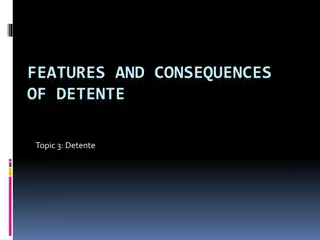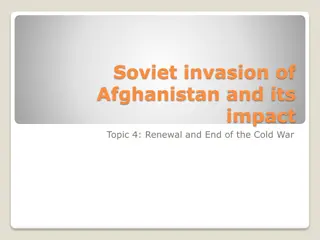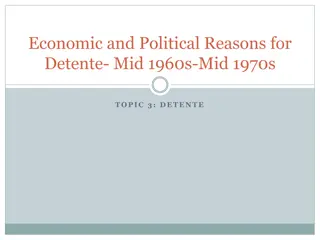Features and Consequences of Detente: A Comprehensive Overview
Detente, a period of reduced tension between global superpowers, saw the implementation of significant arms control agreements and treaties such as the Nuclear Test Ban Treaty, SALT, and the Helsinki Accord. These agreements aimed to limit nuclear proliferation and reduce the risk of nuclear conflic
0 views • 8 slides
Impact of Soviet Invasion of Afghanistan on the End of the Cold War
The Soviet invasion of Afghanistan in 1979 triggered a significant shift in international relations. The US responded with protests, sanctions, and support for Afghan rebels, leading to the collapse of detente. The conflict eventually led to the withdrawal of Soviet troops in 1990, contributing to t
0 views • 5 slides
Shifting Relations Between China and Japan: A Path to Cooperation
The relationship between China and Japan has transitioned from confrontation to détente, marked by positive momentum and normalized tracks in their interactions. This shift, influenced by global dynamics and business interests, signals potential for a healthier mix of cooperation and competition in
0 views • 36 slides
Reasons for Detente in the Mid-1960s to Mid-1970s: Economic and Political Perspectives
Detente, a relaxation of tensions between the US and Soviet Union, was driven by economic and political factors. The nations aimed to limit the nuclear arms race, improve living standards, and establish peaceful relations. The Soviet Union faced economic challenges, leading to a focus on social refo
0 views • 9 slides



